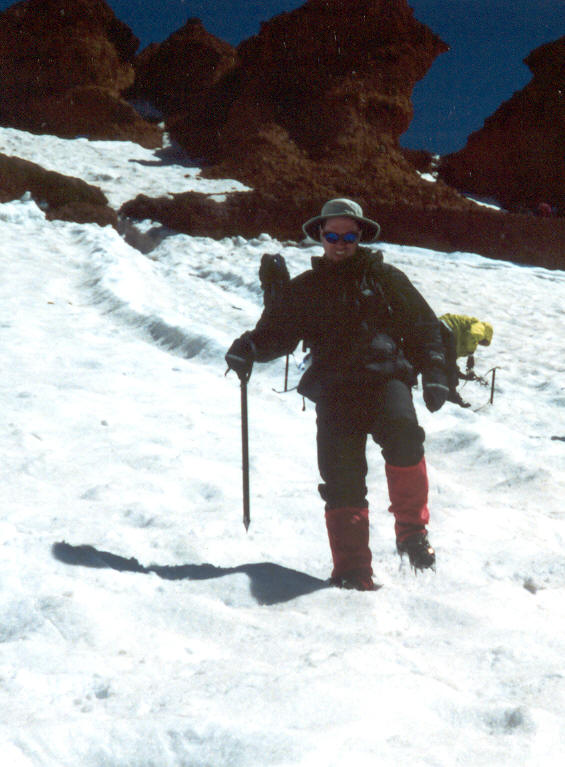  |
Guide to Student Success RTM 251 - Introduction to Recreation and the Natural Environment
|
Students taking this class come for a variety of reasons. Some are from the Recreation and Tourism Management major. Others take the class because the course meets a GE Section in Life Long Learning requirement. Others take it as a free elective. Some students are well versed in on-line courses and for others this will be the first try. Experienced or novice - here are some critically important suggestions to create a successful experience with this class.
Seven Steps to Success
1. Beware of the on-line trap referenced in the introduction page to the course. Follow the link to Sam's story now if you did not before. The point is that we all do better with some level of structure (which is one of the reasons 'ritual' exists in culture - but that is a discussion for later or another class). Most students show up to a regular class because they have been well trained to do that for 12 years or more and it can provide a basic ritual and structure for success. On-line classes have the beauty of flexibility (less structure) and the dangerous flip side of getting behind from that lack of structure. Check-in to the course page with regularity and create a structure or ritual that will replace the verbal reminders of a faculty person standing in front of the room or the motivational questions of the student across the aisle who asks if you've completed the first lab assignment yet. What system you create depends on you, your temperament, and your lifestyle. BUT CREATE A SYSTEM TO KEEP YOU FOCUSED ON THIS COURSE. BTW (by the way) I use all caps for emphasis only, not to represent yelling or raising my voice.
2. Accept the burden of responsibility for course deadlines. I love teaching and working with students but I am not your mother or your father which means among other things that I don't do your laundry nor will I nag you into meeting deadlines. I may post reminders on the bulletin page but the BALL IS IN YOUR COURT and a deadline is firm. Do I accept late work? Read the details at the bottom of the Summary of Assignments page.
3. Once Moodle is up and you login to the course it will confirm that you have begun the class (and read this orientation info). So keep checking with Moodle during the first week of the semester.
Communication through EMAIL:
Contacting the professor: Dr. Al Wright (feel free to call him Al) should be contacted with his CSUN email (awright@csun.edu). If you contact me with an individual question I will always reply to whatever address was the source of the email.
Contacting students by professor: Any class emails sent to students from me will use your official CSUN email that is in the system. If you have a primary email that is not your CSUN account then please have your CSUN email forwarded to your Gmail or Hotmail or other preferred address. Here is how: use any browser to go to www.csun.edu/webmail. Enter your CSUN User ID and Password, go to the tool bar and click Options then Mail then Forwarding and enter your alternate emails (this is the New Webmail - if you use Old Webmail then just click Options then Forwarding). Class lists will be sent blind so other student emails are not visible to recipients.
Contacting students by students: Only students can give out emails to other students so it is up to you to share that information as you choose.
4. Learn the support software and computer functions used with this course. If you are new to online instruction and the web and need additional assistance beyond the links shown here pursue help from fellow students, Office of Online Instruction, or the instructor so that the technology does not hinder your experience. You should be able to perform the following skills: create Word documents, send email, send attachments with email, web surf, web and library data searches, submit a paper to Turn it In, and use of Quizmaker and bulletin board/threaded discussion. Don't worry if you can't do all of these now just be willing to learn the skills as part of the course experience - they are not hard just new for some. To familiarize you with Quizmaker and to help me know a bit about your background, take the pretest - the link is on the assignments page.
5. Consult the experiential opportunities listed in assignments early so you can make advance arrangements where necessary.
6. Be honest and don't plagiarize - writing must come from your personal brain and all ideas or information that are not your own must be referenced. Turn-it-in, is a anti-plagiarism program and papers submitted by students may be forwarded to that system. Students are encouraged to submit the paper directly to Turn-it-in so that the student will see the evaluation before submission. APA format is the intended reference format. If you are not familiar with the system you can always buy the APA book or check out an on-line summary like this one.
7. Have fun. Take a risk at learning something new about yourself, the pursuit of outdoor recreation, and the care and protection of the natural environment in which we work and play.